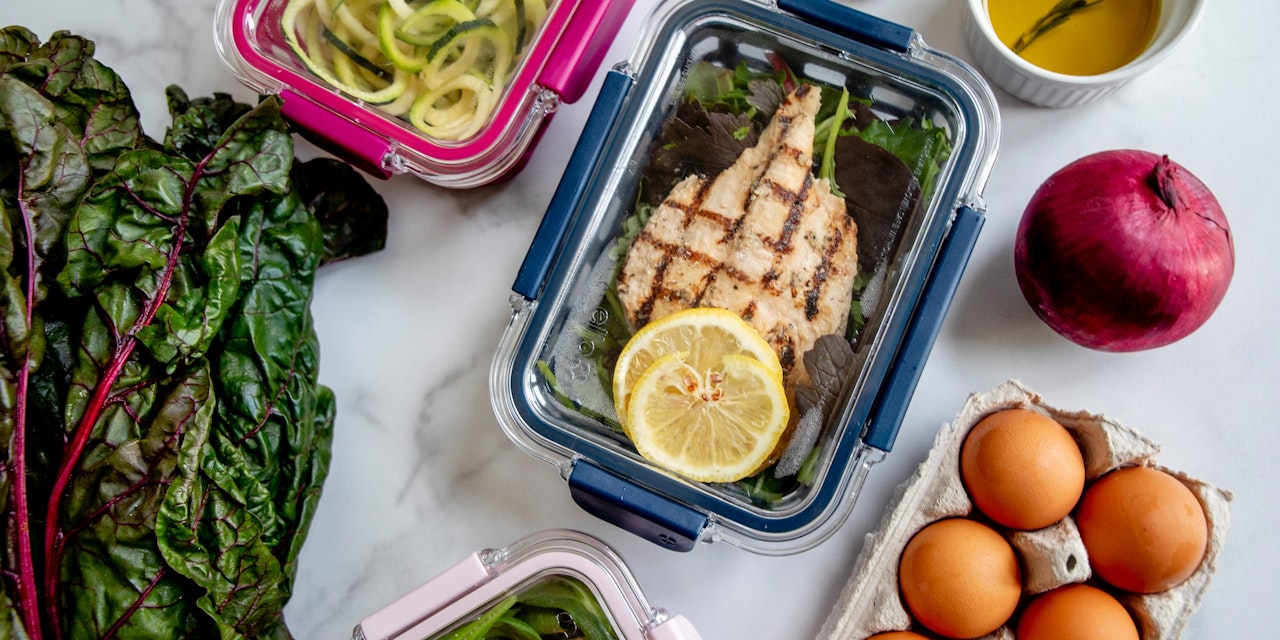What People Always Get Wrong About "Healthy Eating"
There’s plenty of nutrition information out there, but that doesn't mean is right.
- Published: 1/4/2023
- 3 min. read

- Published: 1/4/2023
- 3 min. read
Whether you’re scrolling through social media, watching commercials, or doing a simple search online, there’s plenty of nutrition information out there! The problem is, it's not only overwhelming and confusing, but most of it is not scientifically backed. This is why our experts are here to set the story straight and debunk some of the most common nutrition and healthy eating misconceptions.
Salt is bad
Let’s start off with a sprinkle of information about the salty stuff. Having too much salt has been associated with high blood pressure and heart disease. However, some studies show that a reduced-salt diet may not influence the risk of heart disease or death (1).
The thing with salt is that it can impact our bodies differently. Some people may be more sensitive to salt, meaning that it causes an increase in blood pressure or bloating after they eat it, while others are fine (2). Some people may even have an increased need for salt, such as athletes or people who live in hotter climates and sweat often. Some salt is needed in order for our muscles and nerves to function properly and our body fluids to be regulated.
The best way to approach the salty situation is with moderation. For most healthy people, the recommended amount of salt per day is 6 grams. Since processed foods such as chips, microwave meals, soups, and deli meats are the hard salt hitters and negatively impact health, these are best to enjoy occasionally.
Fruit = sugar = unhealthy
There's been a lot of fear around sugar, especially with the uprising of lower-carb diets such as the keto diet. But fruit contains natural sugar alongside fiber and healthy nutrients. The fiber helps us break down and absorb the sugar at a slower rate which is better for our bodies. The fiber found in fruit can also lower the risk of heart disease and help promote a healthy weight.
You can't get enough protein if you go plant-based
There’s a long-standing myth that states a plant-based diet is not adequate when it comes to protein. This misconception may come from the fact that not all plant-based foods contain all of the essential amino acids or protein building blocks. But our bodies are very efficient at producing and recycling amino acids. Eating a variety of plant-based sources, such as beans, lentils, whole grains and nuts throughout the day, will give you enough protein.
Check out some more excellent sources here: Protein-Rich Plant Options.
You can’t eat things you like
Eating healthy doesn’t mean that you have to cut out the foods or drinks that you enjoy! Rather than considering a food as “good” or “bad”, think of them as a spectrum. Some foods are healthier when it comes to nutrients, such as fruits, vegetables, whole grains, legumes, and low-fat dairy. But it all comes down to balance and still enjoying the eating experience.
There's one diet that works for everyone
Since our genetics, bodies, and experiences are so different, there is no one diet or nutrition plan that works for everyone. Each of our bodies responds differently to different foods. For instance, one study showed that some people’s glucose (blood sugar) dramatically spiked after eating a meal, while others didn’t seem to have much of a reaction (3). Plus some of us may have different sensitivities or allergies to certain foods or prefer some over others.
When it comes to finding long-lasting health and wellness, it's all about finding what works best for you and your lifestyle. Not sure how? Try out different plans with Lifesum.
3 references (hide)
All of the content and media on Lifesum is created and published for information purposes only. It is not intended to be used as a substitute for medical advice or treatment. Users should always consult with a doctor or other health care professional for medical advice. If you have or think you are at risk of developing an eating disorder, do not use the Lifesum app and seek immediate medical help.